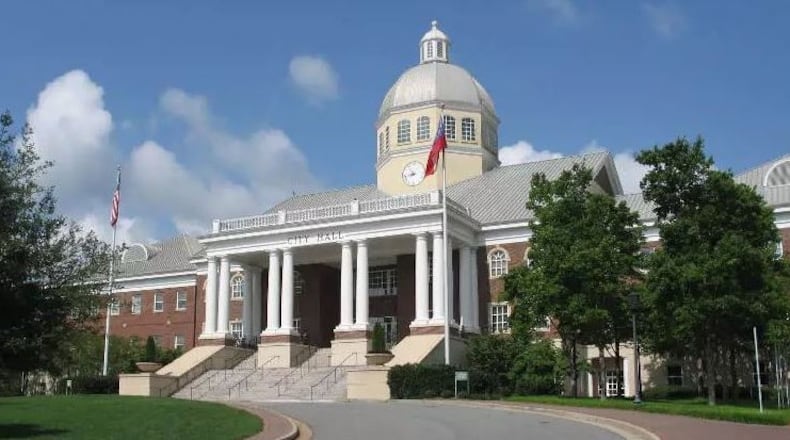Roswell is proposing a requirement that people who submit anonymous open records requests pay for and pick up documents in person.
It’s a move that Richard T. Griffiths, a spokesman for the Georgia First Amendment Foundation, said is not in the spirit of the Open Records Act.
Roswell city attorney David Davison said the proposal is targeting people who use fake names and addresses when requesting public records. Davison said that while the city is required to retrieve, redact and copy records that are requested, the added requirement would be a way to ensure the city is paid for staff time spent compiling the requested information.
“This would protect the public dollars … and hopefully limit some of the time staff is required to use finding all the records that are out there,” Davison said.
City Council, which was briefed on the proposal Tuesday, plans to vote on the measure during its next meeting.
The proposed resolution states “that public records will only be mailed, emailed or delivered electronically to entities or individuals who provide verifiable names and addresses.”
“Anyone wishing to remain anonymous or use aliases may come into City Hall to inspect and copy public documents and to pay for such records and associated search, retrieval, redaction and production or copying costs as provided by law,” the resolution says.
Davison said he was advised by the Attorney General’s Office before drafting the resolution. The AG’s office did not return phone calls or an email from The Atlanta Journal-Constitution.
Griffiths said there is nothing in the Open Records Act that prevents people from being anonymous when seeking information.
“Showing up in person is identifying yourself,” Griffiths said. “You can remain anonymous but you’ve got to show up in person … and if you’ve got a legitimate fear of retaliation for seeking a certain record, that doesn’t diffuse that.”
During Tuesday’s meeting, Councilwoman Sarah Beeson was the sole council member opposed to the measure and pointed to Alpharetta, where in most cases people pay for public records online before they are released electronically.
“I cannot be emphatic enough about how much I opposed this resolution,” she said.
Alpharetta City Clerk Lauren Shapiro said that public safety agencies and municipal court require identification when fulfilling open records requests. Alpharetta Assistant City Administrator James Drinkard said that is true when cases are open or under investigation.
“That information cannot be released to anybody but the people involved and their legal counsel,” he said.
On Wednesday, Beeson said Roswell officials decided to bring forth the open records requirement because of an abundance of public record requests from the community group Roswell Truth, which is critical of the current city administration through social media and email.
Jason Yowell, a longtime resident and member of the Transportation Advisory Commission, said an open records request was filed by someone impersonating him earlier this year — falsely using his name and phone number. He said he was contacted by the city clerk’s office because the request was suspicious in asking for emails between Yowell and another city official.
Yowell said he has filed a police report over the issue and supports the proposed requirement.
“I’ve always been very direct about any information I ask for,” he said. “I don’t see how identifying who you are inhibits that access.”
About the Author
The Latest
Featured



